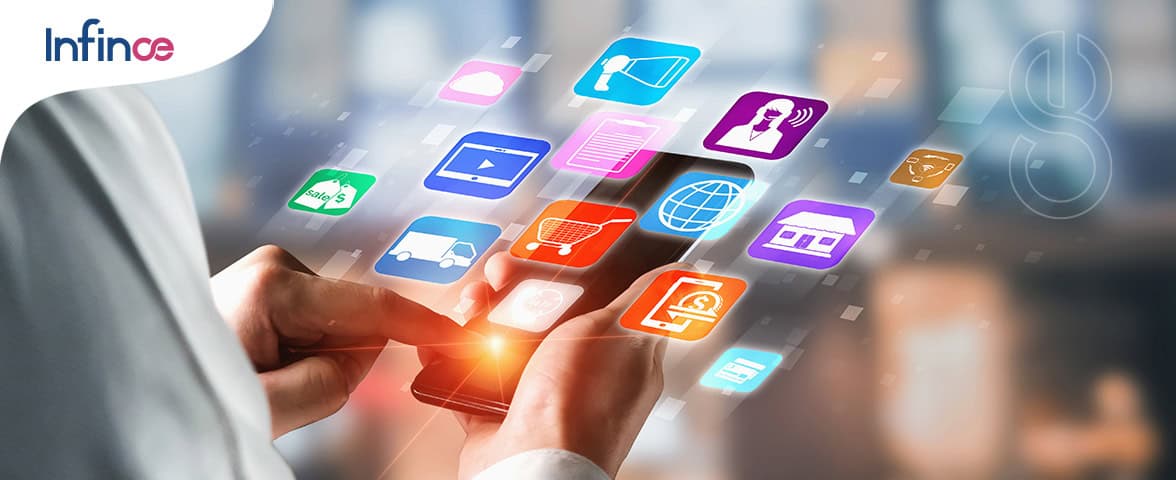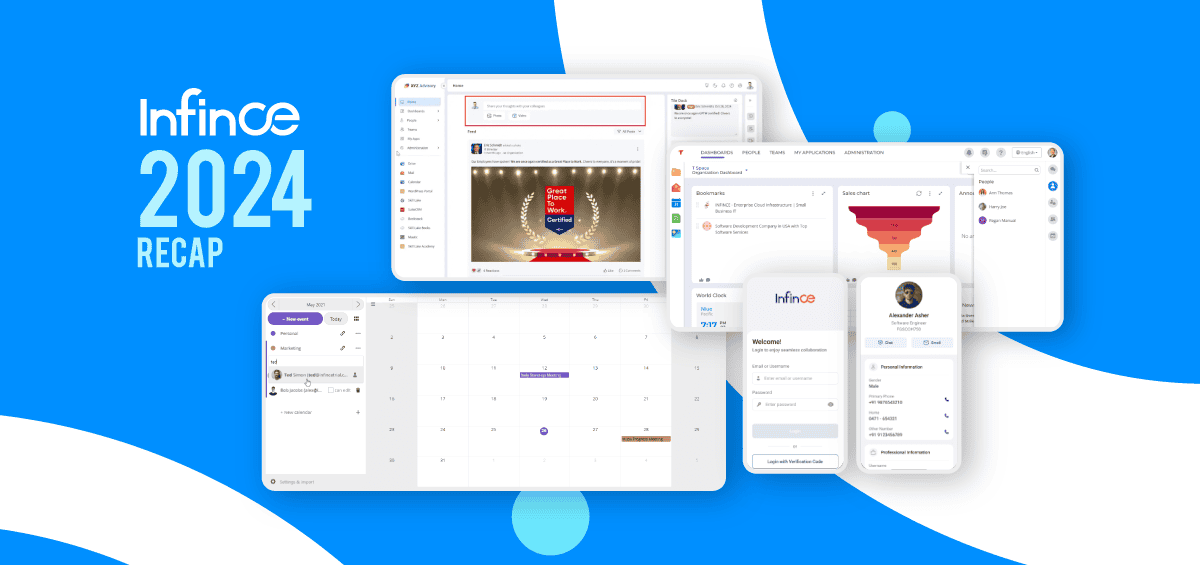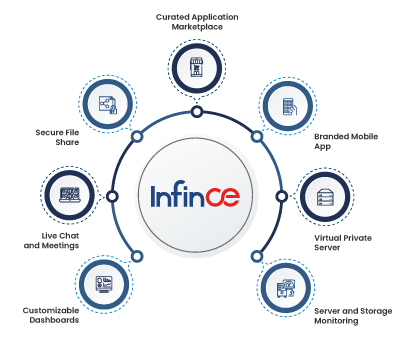Digital marketplaces have been growing extensively since 2020 to help organizations lower friction and increase employee engagement. Since they bring several useful applications under one hood, business software marketplaces streamline the traditionally complex software procurement process. Democratizing technology has helped global enterprises to cut down friction while adopting newer tools and accelerate deployment with reduced IT dependency.
Defining a Business Software Marketplace
A business software marketplace works like an app store and functions like a centralized cloud-based platform. It allows enterprises to get, access, and handle a wide range of business and productivity applications. This includes a plethora of apps like CRM, HRMS, data analytics, and cybersecurity tools. With an enterprise cloud system, all the apps can communicate with one other within a secure, scalable, and compliant environment.
In essence, a business software marketplace is an enterprise application cloud platform with streamlined procurement, centralized governance, and easy integration. This helps organizations meet their digital transformation goals with speed and security.
Why Are Business Software Marketplaces Important?
According to McKinsey’s 2024 Digital Strategy Pulse, enterprises now manage over 130+ technology tools on average across departments. This causes data silos, security risks, and IT bottlenecks. Business software marketplaces aim to solve this challenge by offering a unified ecosystem that simplifies everything from procurement to provisioning and ongoing control.
How Can a Business Software Marketplace Benefit Businesses
A business software marketplace houses tried and tested applications across domains such as project management, customer success, accounting, ERP, and AI-driven analytics. Here are some ways it helps businesses:
- More choice and flexibility: A business software marketplace gives may options to choose, thus, organizations can pick and choose which tool will best suit their needs. They do not have to commit to expensive off-the shelf software that only has limited functionality or a feature-rich product that will not meet their base needs.
- Faster evaluation and deployment: Business software marketplaces typically support rapid vendor evaluation. How? They allow organizations to get demos and trials within a secure environment to simulate and understand fitment. This significantly reduces time-to-value by removing long procurement cycles.
Additionally, integrations are typically pre-verified for compatibility and performance. This reduces the load on IT teams and bypasses potential integration failures that usually cost enterprises billions annually.
For instance, a procurement officer can request and deploy an AI-powered forecasting tool from the same interface used to access HR or finance apps. This also takes care of policy compliance and cuts down overhead costs. - Centralized app management and governance: One of the key differentiators of enterprise marketplaces is administrative visibility and policy enforcement over every app and user. This includes:
• License management and renewals
• Usage analytics
• Data residency and compliance auditing (e.g., SOC2, GDPR, HIPAA) - Private cloud provides better security of data than on-premises: The McKinsey State of Cloud 2025 report mentions that almost 50% of larger enterprises are now focused on using cloud-native applications.This means they are looking at private data layers, emphasizing the need for data and IP protection. Business software marketplaces recognize this critical need. They come equipped with robust security frameworks that include virtual private servers, encrypted data transmission, and isolated computing environments. This means organizations don’t have to worry about negotiating security protocols with each individual vendor because the marketplace handles these requirements upfront.
A recent Ponemon Institute study revealed that enterprises using marketplace-based private cloud infrastructure experienced 60% fewer data breach incidents as opposed to those managing vendor relationships independently. This translates to an average cost savings of $2.8 million per avoided breach incident. - Single-sign on (SSO) management for hassle-free logins: There is a body of research from recent times that highlights how identity and access management (IAM) remains a top security challenge for CIOs. The complexity multiplies when enterprises work with dozens of software vendors, each requiring separate authentication protocols. SSO embedded into software marketplaces addresses this directly. Instead of managing individual login credentials for each application, employees access all their tools through a single, secure gateway.
- Faster scalability: Business software marketplaces solve the problem of scalability through on-demand resource allocation. When your customer service software suddenly needs to handle triple the usual chat volume, the marketplace automatically provisions additional server capacity within minutes. You’re not locked into annual contracts for computing power you might only need during peak periods. Instead, you pay for what you use when you use it.
How Is Infince Your Most Suitable Business Software Marketplace?
The right business software marketplace should offer an extensive range of productivity tools and business applications under one roof. Here’s why Infince is the right pick:
- A unified platform that offers multiple app functions: Infince brings together many apps on to a single solution. Project management, customer relationship management, and other business applications… all delivered in one package. This way, you don’t have to manage relationships with multiple vendors.
- A scalable system that helps save costs: With Infince, you can proactively scale based on your business needs. As application usage declines, Infince scales back resources. There is no need for manual adjustments – this operates automatically.
- Built-in security and integration: Infince provides you built-in security controls. Each user has a single sign-on authentication to access all the tools. You’ll never have to worry about creating and managing the interfaces between tools; they are all automatically pre-integrated and will work together seamlessly. This helps you avoid the endless hassle of making different software programs communicate with one another.
- Reduced complexity for IT management: Your IT team will benefit from centralized user management and software deployments, and they can focus on strategic projects instead fixing interoperability problems, maintaining user access, and managing multiple vendor contracts.
- Remote work-friendly solution: With remote work on the rise, Infince works perfectly well to suit both remote and hybrid worksplace. Employees can access apps from any location and use all types of devices. Infince offers a mobile-friendly experience and offline functionality where necessary.
Change the way you do business with more engaged employees and productivity. Start your journey with Infince now.






